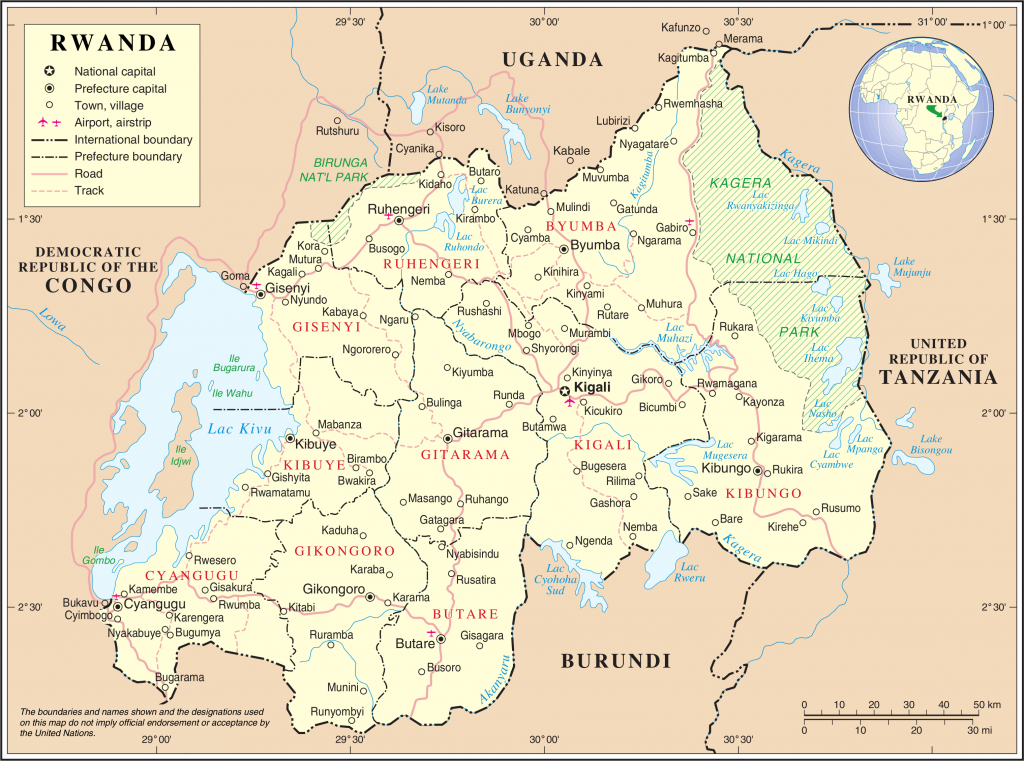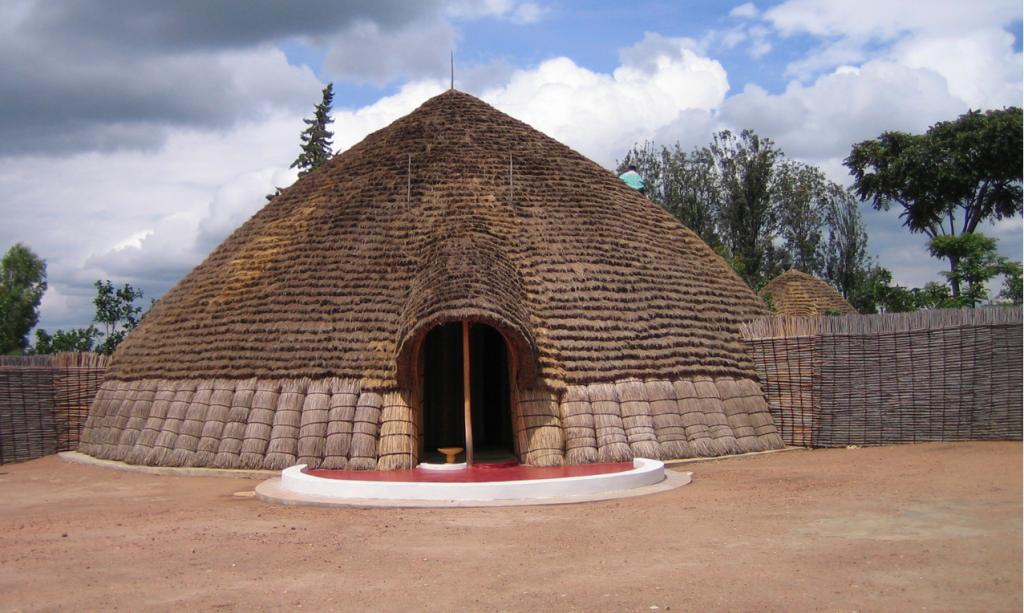Homosexuality in Africa has been a hot topic of late, particularly in the aftermath of Uganda’s recently repealed (but still threatening) anti-homosexuality law of 2014. Among the arguments the law’s supporters put forward was that homosexuality was somehow un-African. Many scholars and activists have pushed back at this ridiculous notion. Indeed, as elsewhere, same-sex loving and desiring people have long existed in Africa, and will continue to do so.
Often missing, however, are the stories of who precisely these historical Africans are. In some cases their personalities and individual lives have been lost to the historical record. But we often do have some details of their lives, which can help us better understand how different societies understood same-sex behaviors and identities, and how those were even institutionalized in those societies. The role of the umutoni in the pre-colonial Rwandan monarchy is an example of this kind of institutionalized relationship. Because the lives of individual kings, or bami (sing. mwami), were meticulously recorded by court historians, we have a glimpse into how these relationships functioned at court, and how they were understood in their own historical context.

The relationship between the Rwandan Mwami Yuhi IV Gahindiro (r.1820-1847) and his advisor, Rugaju, illuminates the umutoni role and his relationship with the mwami. Rugaju was the son of Mutimbo, whose family had migrated to Nduga (contemporary south-central Rwanda) from Ndorwa (contemporary northeast Rwanda and southeast Uganda). They were a family of modest herders who had gained favor at the royal court, and Rugaju and Gahindiro became friends as children during their intore (warrior) training. As Gahindiro rose to prominence, Rugaju rose with him, becoming Gahindiro’s most trusted advisor when he became mwami. Gahindiro entrusted Rugaju with the most important political aspects of running the kingdom. Rugaju was Gahindiro’s umutoni, in a tradition dating back at least to the court of Mwami Kigeli III Ndabarasa (r. ca. 1786-ca.1796), and his own great favorite Rukari of Muhabura. In both of these cases, the umutoni was not simply an advisor, but the closest of companions.
Umutoni (pl. abatoni) is often translated from Kinyarwanda as “best friend,” but this does not adequately express the complexity of the term. An umutoni is the closest of friends, one who is prized and protected above all others. The umutoni relationship implies a deep commitment to one another’s wellbeing, and to one’s physical and spiritual sustenance. An umutoni is one for whom you would give your life and all of your riches. While in Rwanda today the term is mostly used to describe a close platonic relationship, in the eighteenth and nineteenth centuries it also carried the implication of an erotic relationship. When I conducted research in Rwanda in 2012 and asked one of my research assistants about the term, he smiled conspiratorially and made a gesture indicating penetration to demonstrate the meaning of the word in this context. Though it seems that some Rwandans are aware of this older meaning, today the term is used almost exclusively to describe friendships and not sexually-intimate relationships.

The older meaning seems to find its exemplary expression in the early nineteenth-century relationship between Gahindiro and Rugaju. Jan Vansina writes that “homosexuality was admitted at court and quite common in military circles.” But he goes on to argue that this did not necessarily signal greater political influence for the kings’ lovers. The reality, it seems, is more complicated.
The umutoni was a fixture of elite social norms in the Great Lakes region. Colonial-era studies indicate that royal favorites were common in both Rwanda and Burundi, and that these were usually men chosen from the ranks of pastoralists with whom the noblemen had a patron-client relationship. An understanding of the umutoni as he existed at court, particularly if he was the mwami’s lover as well as his advisor, is key to a broader understanding of how political power was gained, lost, and practiced in elite circles.
Rugaju and Gahindiro both benefitted from their relationship. Though Gahindiro was the mwami, he ascended the throne in the aftermath of a violent civil war, and his support came mostly from his mother’s very powerful lineage, which threatened the supremacy of the royal line. In order to gain some measure of independence, Gahindiro looked to Rugaju as someone who would support him, because Rugaju owed his career to Gahindiro.
Rugaju, likewise, profited substantially. He rose in wealth and influence through Gahindiro’s patronage, which in turn allowed him to build his own political network throughout the country. He also developed tools that were used through the rest of the century to centralize royal power and strengthen monarchical authority. Some oral traditions even refer to Rugaju as a regent, because he exercised so much authority.
The stories of these individual relationships, as well as the institutions with which they intersected, are a vital part of increasing our understanding of traditions of same-sex love in Africa. This creates not only a historical context through which we can reexamine current events, but also a way to raise questions important to our contemporary discourse on eroticism and power. By including same-sex relationships in our studies of pre-colonial societies, we not only better appreciate the dynamics of intimacy and eroticism, but we also gain a more holistic understanding of the society at large, particularly in places where these relationships were part of the mechanisms of power. It is not enough to simply acknowledge that same-sex loving and desiring people existed; we must also demonstrate how those people lived and the impact of those lives on their cultures and histories.
 Sarah E. Watkins is a Research Fellow at the Interdisciplinary Humanities Center at the University of California, Santa Barbara, where she also serves as a Lecturer in the Departments of History and Feminist Studies. She is interested in the intersections of eroticism, intimate labor, gender, and political power in Africa. She is currently working on a book manuscript titled, Mistress of the Drum: Intimate Politics and State Formation in Rwanda. Sarah tweets from @SarahEWatkins.
Sarah E. Watkins is a Research Fellow at the Interdisciplinary Humanities Center at the University of California, Santa Barbara, where she also serves as a Lecturer in the Departments of History and Feminist Studies. She is interested in the intersections of eroticism, intimate labor, gender, and political power in Africa. She is currently working on a book manuscript titled, Mistress of the Drum: Intimate Politics and State Formation in Rwanda. Sarah tweets from @SarahEWatkins.

NOTCHES: (re)marks on the history of sexuality is licensed under a Creative Commons Attribution-NonCommercial-NoDerivatives 4.0 International License.
Based on a work at www.notchesblog.com.
For permission to publish any NOTCHES post in whole or in part please contact the editors at NotchesBlog@gmail.com





Pingback: Sunday Morning Medicine | Nursing Clio
I think it is more eroticism than friendship, gay in ancient Rwanda exist and the secret was only known by those who are attracted each other.
I remember one day a very aged man when I was under teen , told me that there are some men called ” ibisendabageni” which means men who are not attracted to women.